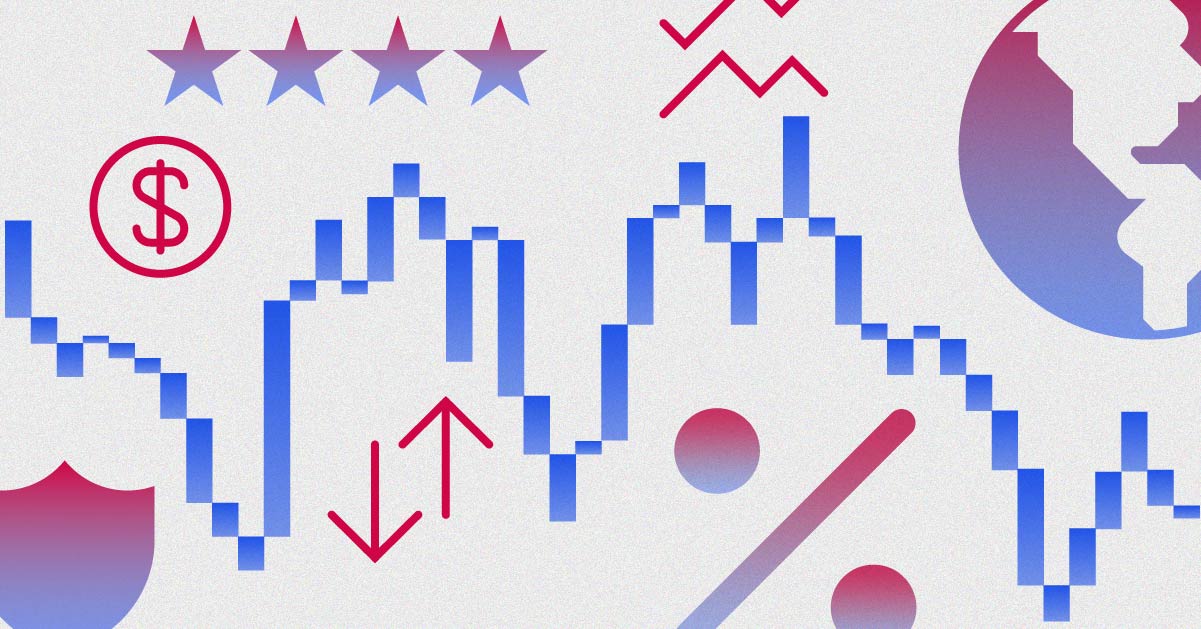Japan Raises Interest Rates for the First Time In 17 Years
Japan’s stock market hit record highs this month. Now the cost of borrowing is in positive territory.

The Bank of Japan has ended a long period of speculation by raising interest rates for the first time in 17 years. The move comes as pressure grows on Western central banks to cut rates after their recent aggressive hikes.
Japan’s short-term policy rate was raised from negative 0.1% to 0.0% to 0.1%. It’s not a massive change, but it symbolizes the end of negative rates. The central bank also ended its controversial yield curve control program and its purchases of ETFs and real estate investment trusts.
Morningstar Japan Index
Japan Gets Inflation Too
After many years of battling deflation, Japan now sees inflation trending above the central bank’s 2% target, helped by some of the first pay raises the country’s workers have received in decades. Domestic companies have also been able to pass on cost increases to consumers after a long period of stable and falling prices.
After the move, Japan’s stock market indices rose modestly, following their recent record highs. The Morningstar Japan Index has risen nearly 9% this year and is up 124% over 10 years.
Despite the rate increase, the yen fell against major currencies, with the dollar/yen rate moving above 150 yen and the pound/yen rate rising above 190 yen. Swissquote Bank senior analyst Ipek Ozkardeskaya published a note this morning titled “Where Are the Yen Bulls?” The long-awaited move was supposed to reverse the yen’s fortunes—certainly, many currency traders anticipate a bounce this year—but today it hasn’t had the expected impact. “The price action suggests a ‘one and done’ action from the Bank of Japan,” wrote Ozkardeskaya.
Nikko Asset Management global strategist and managing director Naomi Fink reinforced that markets are not expecting more hikes from the central bank, which could explain some of the yen’s weakness. “We are now in wait-and-see mode, particularly given ‘uncertainty’ coming not only from Japan but also from overseas economies,” she said.
“As such, there remains no immediate catalyst for the Bank of Japan to continue hiking,” she continued. “Evidence of real income growth, ongoing productivity-enhancing investment and positive sentiment from corporates, and recovery in domestic consumption remain to be seen before any next move, given reflation is happening in a manner conducive to withdrawing stimulus very deliberately.”
The Yen Against the US Dollar Over 10 Years
Abe’s Economic Legacy
Howe Chung Wan, managing director and head of Asian fixed income at Principal Asset Management, thinks the rate change has been a long time coming and is a consequence of the changes initiated by Japan’s late prime minister Shinzo Abe.
“I believe Japan has been building to this moment. It’s been more than a decade since ‘Abenomics’ was introduced to combat two decades of a deflationary environment,” Wan explains. “Now this comprehensive policy package—covering monetary, fiscal, social, labor, and economic reforms—has created a ripe environment for Japan to begin to recover. It’s important to remember, however, that a large portion of the working population has never experienced a high-growth Japan, so confidence will take time to build.”
Japan’s (Slow) Corporate Governance Revolution
One of Abe’s key reforms concerned corporate governance, and experts say these changes have driven some of the stock market gains of the last few years. Some overseas investors have lost patience with the many recent false dawns. Japan’s stock market rally has lacked an obvious narrative hook, like the current artificial intelligence boom in the United States. But Morningstar’s Leslie Norton recently argued that the Japanese stock market can sustain its elevated values.
The prevailing narrative in the high-inflation era has been that Japan is somehow immune to global price pressures, that its economy is unique and on a different track than the West. This ignores the interrelated nature of capital markets.
Discussing the interest rate hike, David Mitchinson, fund manager at Zennor Asset Management, argues that the Bank of Japan’s move will have knock-on effects: “This is a structural change that is very important for Japan and global capital market flows. The US, for instance, has been able to rely on large Japanese surplus savings to fund the deficit. With rates in Japan now rising and elevated hedging costs, this is increasingly unattractive. Will these flows reverse? What will the impact be on US rates?”
The Federal Reserve meets this week, as does the Bank of England. Both are expected to hold interest rates steady. Markets expect the first rate decreases to come in June.
The author or authors do not own shares in any securities mentioned in this article. Find out about Morningstar’s editorial policies.

/s3.amazonaws.com/arc-authors/morningstar/31386fbf-60e6-4ce6-aad8-4a4cb1fc6847.jpeg)
/cloudfront-us-east-1.images.arcpublishing.com/morningstar/XF7WENSYN5BFBFLPPFH7BJYUHE.png)
/cloudfront-us-east-1.images.arcpublishing.com/morningstar/G3DCA6SF2FAR5PKHPEXOIB6CWQ.jpg)
/cloudfront-us-east-1.images.arcpublishing.com/morningstar/VUWQI723Q5E43P5QRTRHGLJ7TI.png)
:quality(80)/s3.amazonaws.com/arc-authors/morningstar/31386fbf-60e6-4ce6-aad8-4a4cb1fc6847.jpeg)